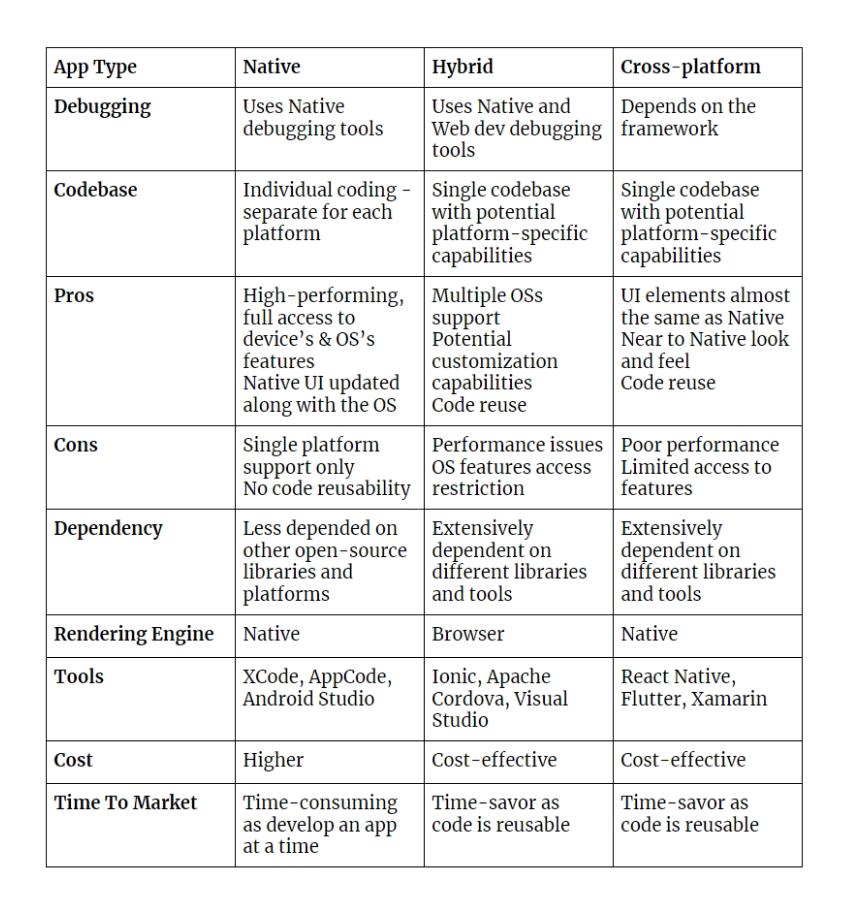Native vs. Cross-Platform App Development
Choosing the right development approach for your mobile app is important. Let's break down the key differences between native and cross-platform development:
Native App Development
- Platform-specific: Developed for a single platform (iOS or Android).
- Performance: Offers optimal performance and user experience.
- Access to Features: Full access to device hardware and APIs.
- Development Time: Typically longer and more expensive due to separate codebases for each platform.
Cross-Platform App Development
- Multiple Platforms: Developed once and deployed on multiple platforms (iOS, Android, and sometimes web).
- Cost-Effective: Generally cheaper and faster to develop.
- Code Reusability: Single codebase can be reused across platforms.
- Performance: Can sometimes compromise performance compared to native apps.
 When to Choose Which
When to Choose Which
- Native: If performance, user experience, and access to platform-specific features are paramount.
- Cross-Platform: If you need to reach a wide audience quickly with a limited budget.
Factors to Consider:
- Target Audience: Consider the primary platform used by your target audience.
- App Complexity: Complex apps with heavy computations or graphics might benefit from native development.
- Budget and Timeline: Cross-platform development is often more cost-effective and faster to market.
- Long-Term Goals: Evaluate your app's future growth and scalability needs.
Hybrid Approach: A hybrid approach combines elements of both native and cross-platform development. It can offer a balance between performance and development efficiency.
Ultimately, the best choice depends on your specific project requirements, budget, and development team's expertise.
